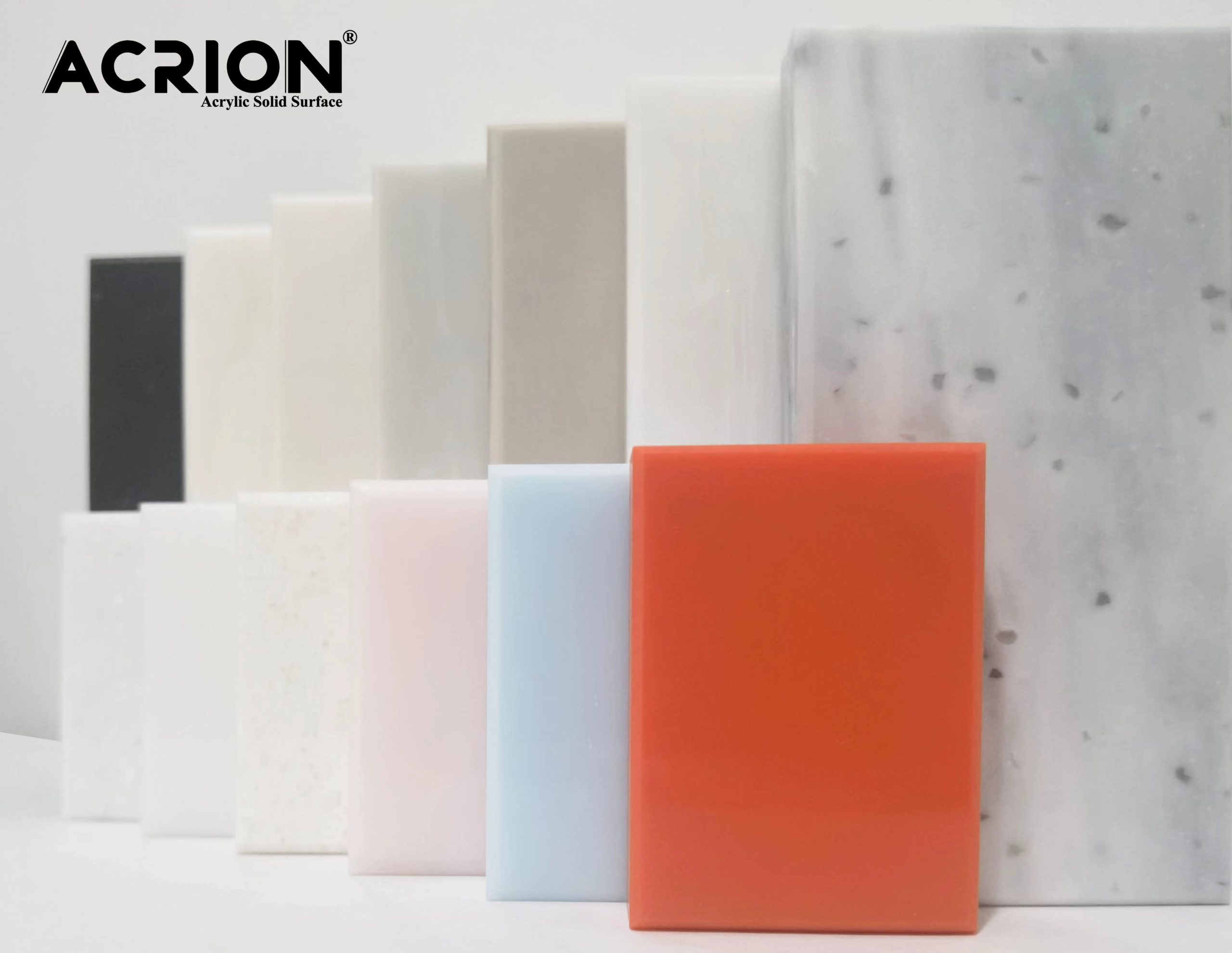Analysis of the non-permeability Advantage of Kelinai countertops
One of the core advantages of Keli Nai countertops is their non-permeability. Through material properties and process design, they achieve efficient blocking of liquids, stains and bacteria. The following analysis is conducted from three aspects: technical principles, practical applications, and comparative advantages:
Technical principle: Dense structure and chemical stability
Molecular-level density: Klinai is made by compounding acrylic resin (PMMA) with natural minerals (trihydrated alumina), and its molecular structure is highly dense with a porosity close to zero. This characteristic prevents the liquid from penetrating into the interior of the material, fundamentally avoiding the residue of stains.
Chemical inertness: The countertop surface has chemical stability and is resistant to acidic and alkaline substances (such as lemon juice, vinegar, cosmetics, etc.). After contact, it only remains on the surface and leaves no residue after cleaning.
2. Practical application advantages
Anti-fouling performance:
In the kitchen setting, common stains such as soy sauce, coffee and cooking oil can be removed simply by wiping with a damp cloth, without the risk of penetration.
Laboratory tests show that the Corine countertop shows no staining within 24 hours after coming into contact with highly permeable liquids such as red wine and iodophor.
Hygiene and safety
The non-permeable surface eliminates the breeding ground for bacteria, making it particularly suitable for scenarios with strict hygiene requirements such as medical care and food processing.
The seamless splicing process further eliminates the problem of dirt accumulation in the gaps, and the overall cleaning efficiency is improved.
Durability
After long-term use, the countertop surface will not discolor or mold due to liquid penetration, maintaining its appearance as good as new.
Compared with ordinary artificial stones (such as quartz stone), Kelinai has a more lasting anti-stain performance, reducing the need for renovation or replacement.
3. Comparative advantage: Non-permeability vs. Traditional materials
Features: Common artificial stone (such as quartz stone) for Carina countertops
The porosity is close to zero, with no risk of penetration. There are micro-pores, and the liquid may seep in
For stain cleaning, just wipe with a damp cloth. If there is no residue, a professional cleaner is needed as it may leave marks
The surface for bacterial growth is smooth, and bacteria cannot adhere to crevices or micro-pores, making it easy for bacteria to breed
The long-term appearance is resistant to discoloration and mold. However, after prolonged use, it may show signs of color bleeding or yellowing
The maintenance cost is low, and there is no need for frequent repairs. However, it requires regular treatment of color bleeding or scratches
4. Typical application scenarios
Kitchen countertop: Oil stains, seasonings and other liquids cannot penetrate, and it is easy to clean.
Bathroom cabinet: Water stains and cosmetic residues can be wiped clean with one wipe, avoiding mold spots.
Medical/laboratory countertop: Chemical reagents do not permeate, meeting hygiene standards.
Public areas: such as restaurants, cafes and other high-frequency usage scenarios, with strong stain resistance and low maintenance costs.
5. User Value Summary
Save cleaning time: The non-permeable surface reduces the need for deep cleaning, making daily maintenance easier.
Extend service life: Avoid structural damage caused by penetration and make the countertop more durable.
Enhance hygiene standards: No risk of bacterial growth, suitable for environments with high hygiene requirements.
Reduce long-term costs: Cut down on replacement or repair expenses caused by issues such as stains and discoloration.
The non-permeability of Keli Nai countertops is achieved through the combination of material science and process design, realizing multiple advantages such as stain resistance, antibacterial properties, and durability. It is an ideal choice for high-end countertop materials.
